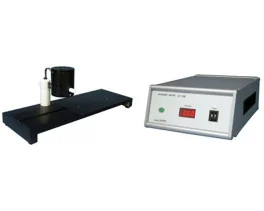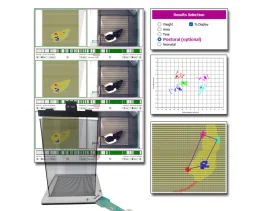Authors
S. Grall, D. Prunier-Mirebeau, S. Tamareille, V. Mateus, D. Lamon et al
Lab
Laboratoire Protection et Remodelage du Myocarde, Université, Angers, Angers, France
Journal
Shock
Abstract
Remote ischemic perconditioning (RIPer) and local ischemic postconditioning (IPost) are promising methods to decrease ischemia-reperfusion (I/R) injury. We tested whether these two methods were effective in reducing infarct size through activation of endoplasmic reticulum (ER) stress response, a potential survival pathway. Rats exposed to myocardial I/R were allocated to one of six groups: Control, no intervention at myocardial reperfusion; IPost, three cycles of 10-s coronary artery occlusion followed by 10-s reperfusion applied at the onset of myocardial reperfusion; RIPer, 10-min limb ischemia followed by 10-min reperfusion initiated during coronary artery occlusion; Control+4-PBA, injection of ER stress inhibitor 4-phenylbutyrate (4-PBA) 1 hour prior to coronary occlusion; IPost+4-PBA, and RIPer+4-PBA. Infarct size was significantly reduced in IPost and RIPer groups (33.32+/-3.65% and 21.86+/-3.98%, respectively) compared with the control group (54.86+/-6.01%, p<0.05). Western blot analysis of GRP78 level and cleaved ATF-6, two ER stress markers, demonstrated an enhancement of ER stress response in IPost group but not in RIPer group at 15-min reperfusion. Furthermore, 4-phenylbutyrate abolished cardioprotection induced by IPost (infarct size: 53.75+/-3.49 vs 33.32+/-3.65%, p<0.05) but not by RIPer (28.80+/-10.45% vs. 21.86+/-3.98%, p=NS). GRP78 and cleaved ATF-6 levels were no longer increased in IPost group after 4-phenylbutyrate. These findings point to a role for ER stress response in cardioprotection against reperfusion injury in IPost but not RIPer, suggesting differences in cardioprotective mechanisms between local and remote conditioning.

 Douleur - Allodynie/Hyperalgésie Thermique
Douleur - Allodynie/Hyperalgésie Thermique Douleur - Spontanée - Déficit de Posture
Douleur - Spontanée - Déficit de Posture Douleur - Allodynie/Hyperalgésie Mécanique
Douleur - Allodynie/Hyperalgésie Mécanique Apprentissage/Mémoire - Attention - Addiction
Apprentissage/Mémoire - Attention - Addiction Physiologie & Recherche Respiratoire
Physiologie & Recherche Respiratoire




































 Douleur
Douleur Système Nerveux Central (SNC)
Système Nerveux Central (SNC)  Neurodégénérescence
Neurodégénérescence Système sensoriel
Système sensoriel Système moteur
Système moteur Troubles de l'humeur
Troubles de l'humeur Autres pathologies
Autres pathologies Système musculaire
Système musculaire Articulations
Articulations Métabolisme
Métabolisme Thématiques transversales
Thématiques transversales Congrès & Meetings
Congrès & Meetings